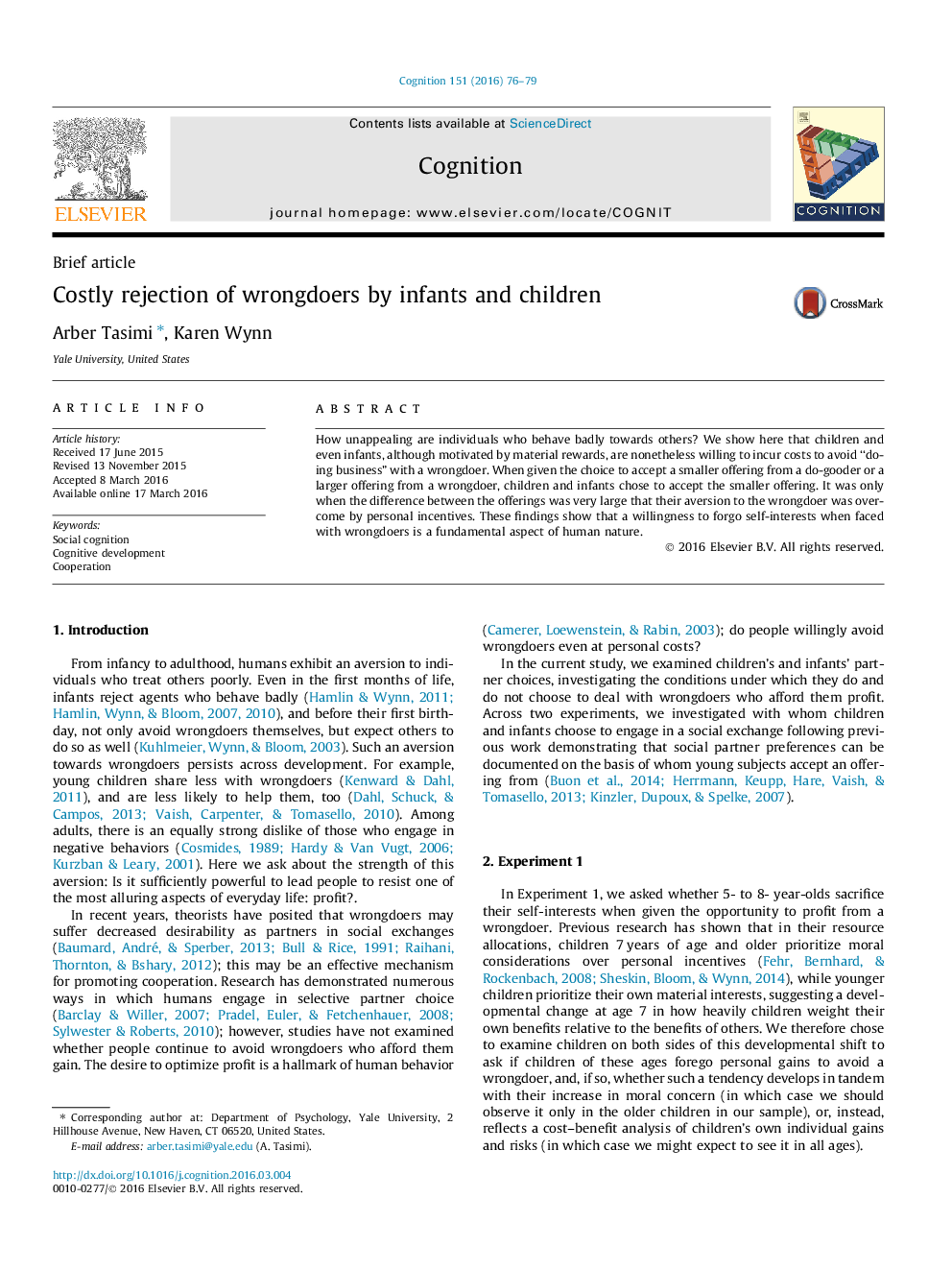| Article ID | Journal | Published Year | Pages | File Type |
|---|---|---|---|---|
| 926416 | Cognition | 2016 | 4 Pages |
•Across development, humans exhibit a deep aversion towards wrongdoers.•We examined whether children and infants incur personal costs to avoid a wrongdoer.•Subjects chose a small amount from a do-gooder rather than a large one from a wrongdoer.•The larger the amount, the more willing subjects were to deal with a wrongdoer.•These findings highlight the psychological significance of early social assessments.
How unappealing are individuals who behave badly towards others? We show here that children and even infants, although motivated by material rewards, are nonetheless willing to incur costs to avoid “doing business” with a wrongdoer. When given the choice to accept a smaller offering from a do-gooder or a larger offering from a wrongdoer, children and infants chose to accept the smaller offering. It was only when the difference between the offerings was very large that their aversion to the wrongdoer was overcome by personal incentives. These findings show that a willingness to forgo self-interests when faced with wrongdoers is a fundamental aspect of human nature.
